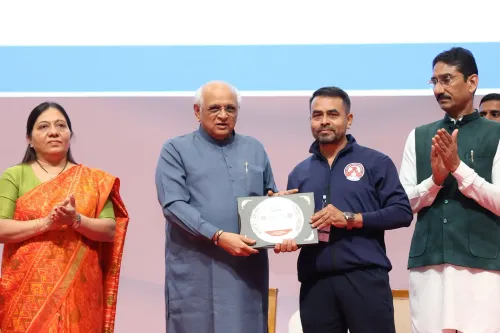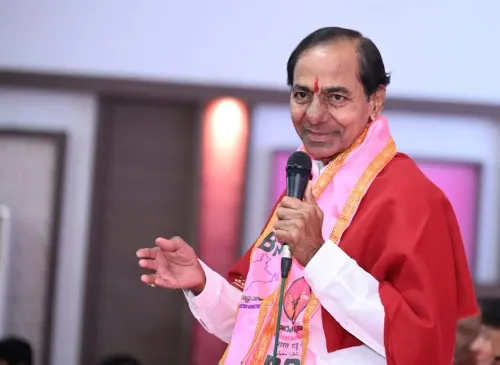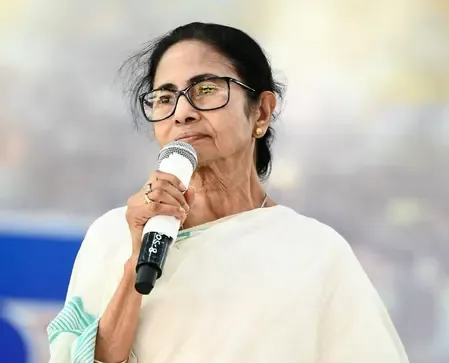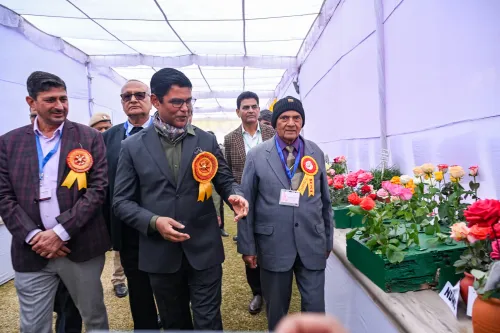Transformative Waqf Bill Fights Corruption and Empowers Marginalized Muslims, Claims MRM
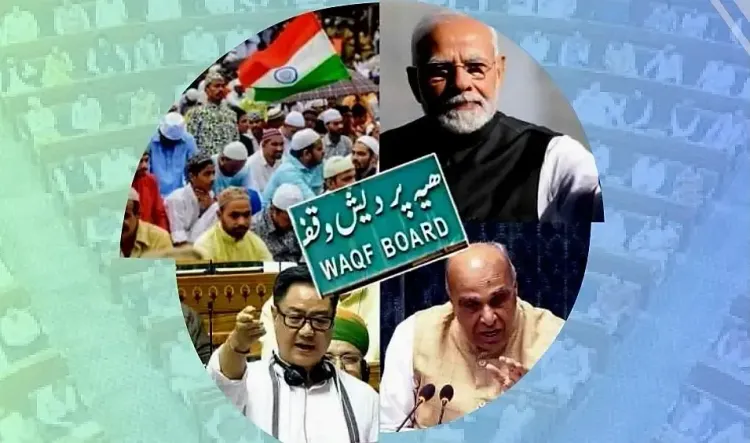
Synopsis
Key Takeaways
- Historic legislation passed to reform Waqf properties.
- MRM emphasizes transparency and justice for marginalized Muslims.
- Public awareness campaigns conducted nationwide.
- Book on Waqf reform serves as an ideological guide.
- Experts support the Bill for its potential to resolve corruption issues.
New Delhi, April 4 (NationPress) A surge of hope and happiness enveloped the country as the Waqf Amendment Bill 2024 was successfully passed in both Houses of Parliament. The Muslim Rashtriya Manch (MRM) celebrated this Bill on Friday, calling it a landmark step that will foster transparency, justice, and growth within the Muslim community.
In their statement, MRM acknowledged Prime Minister Narendra Modi, Home Minister Amit Shah, Minority Affairs Minister Kiren Rijiju, JPC Chairman Jagdambika Pal, and the relentless efforts of numerous MRM volunteers for the Bill's successful enactment.
The National Convener and Media In-charge of MRM, Shahid Sayeed, expressed his pride and enthusiasm, encouraging the Muslim community to commemorate this remarkable accomplishment. “This law is not directed against any religion or sect; it serves as a beacon of transparency, justice, and development. It secures rightful entitlements for orphans, widows, the poor, and the needy,” Sayeed stated. He emphasized that the Bill represents not merely a legal reform but also a triumph for marginalized groups, especially within the Muslim community.
Furthermore, MRM urged the public to remain vigilant against divisive political factions, highlighting the necessity of unity and brotherhood following the introduction of this new law. The organization described the Bill as a pivotal advancement toward eradicating exploitation and corruption surrounding Waqf properties—a situation that has allegedly been manipulated by mafias and land jihadists for decades.
“The Waqf is now liberated,” declared the MRM. “Despite India achieving independence in 1947, it is only now that Waqf properties have been liberated from political interference and corruption.” The Manch accentuated the historical significance of this moment, advocating for PM Modi’s legacy to be honored in golden letters for his involvement in the reform.
To raise awareness and generate public support for the Bill, MRM activists organized over 5,000 public meetings, seminars, debates, and article campaigns nationwide. These initiatives revealed extensive corruption within the Waqf system and underscored the improper use of properties intended for community welfare. MRM officials diligently worked to counter misleading narratives and rumors, stressing that the Bill does not jeopardize anyone’s faith but instead lays the groundwork for essential social reform, as per the Manch.
One of the key elements behind the campaign was the publication of the book ‘Waqf Bill 2024: Respect to Islam and Gift for Muslims,’ which became a fundamental ideological resource for the movement, according to MRM. The book, detailing the history and potential of Waqf reform, was broadly circulated by MRM volunteers and reached prominent leaders, such as Uttar Pradesh Chief Minister Yogi Adityanath and Karnataka Governor Thawar Chand Gehlot.
During the book's launch, Union Minister Kiren Rijiju praised it as an “encyclopedia of Waqf,” recommending it for anyone seeking to comprehend the intricacies of the issue. The book brought attention to the misuse of Waqf assets, indicating that Waqf properties valued at approximately Rs 2 lakh crore were underutilized, with annual earnings significantly lagging behind their potential, as stated by MRM. The Sachar Committee report estimated that the annual revenue from Waqf assets could reach Rs 1.25 lakh crore, funds that could have been invested in education, healthcare, and social welfare programs for the Muslim community. However, much of this potential was wasted due to inaction and mismanagement by the Waqf Board, according to MRM.
Experts from various fields also welcomed the Bill's passage, emphasizing its capacity to tackle long-standing issues related to Waqf management. Prof. (Dr.) Shahid Akhtar, acting chairperson of the National Commission for Minority Educational Institutions (NCMEI), described the Bill as a victory for truth. “For years, there have been complaints about encroachments and corruption in Waqf properties. Now, these issues can be addressed,” he remarked. He noted that proper management of these assets could lead to substantial advancements in the education, healthcare, and economic sectors of the Muslim community.
Social activist and analyst Dr. Shalini Ali highlighted the apprehension some so-called community leaders felt regarding the Bill’s passage. “Those who falsely presented themselves as community leaders were fearful of digitization, CAG audits, and transparency because it would expose their illicit assets,” she noted. She further asserted that the Bill would reveal the true identities of those who have exploited Waqf properties for personal gain.
Advocate Shiraz Qureshi, a specialist in Muslim affairs, shared similar sentiments, clarifying that the Bill would not interfere with Muslim properties but rather guarantee that Waqf assets are used transparently for the community’s upliftment. “The Bill aims to ensure that impoverished Muslims receive their rightful share and that corrupt individuals no longer control these assets,” Qureshi added.


